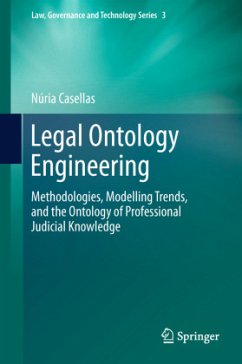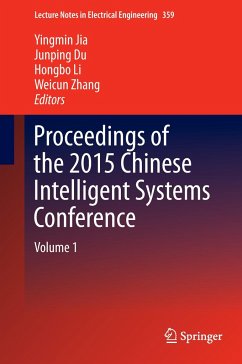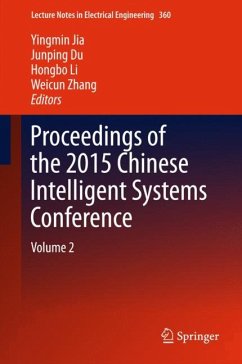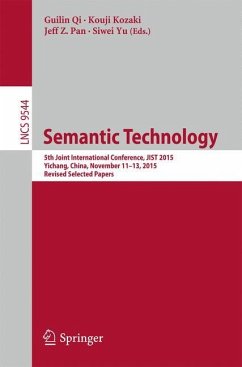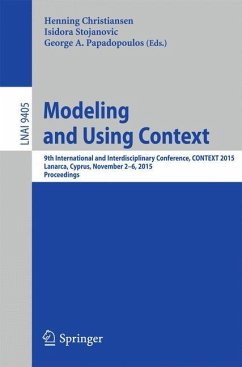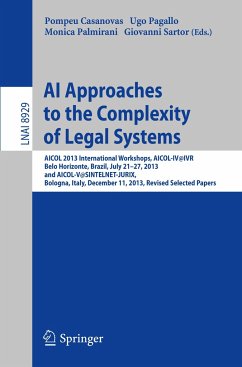
AI Approaches to the Complexity of Legal Systems
AICOL 2013 International Workshops, AICOL-IV@IVR, Belo Horizonte, Brazil, July 21-27, 2013 and AICOL-V@SINTELNET-JURIX, Bologna, Italy, December 11, 2013, Revised Selected Papers
Herausgegeben: Casanovas, Pompeu; Pagallo, Ugo; Palmirani, Monica; Sartor, Giovanni

PAYBACK Punkte
20 °P sammeln!
This book constitutes revised selected papers from the two International Workshops on Artificial Intelligence Approaches to the Complexity of Legal Systems, AICOL IV and AICOL V, held in 2013. The first took place as part of the 26th IVR Congress in Belo Horizonte, Brazil, during July 21-27, 2013; the second was held in Bologna as a joint special workshop of JURIX 2013 on December 11, 2013. The 19 papers presented in this volume were carefully reviewed and selected for inclusion in this book. They are organized in topical sections named: social intelligence and legal conceptual models; legal t...
This book constitutes revised selected papers from the two International Workshops on Artificial Intelligence Approaches to the Complexity of Legal Systems, AICOL IV and AICOL V, held in 2013. The first took place as part of the 26th IVR Congress in Belo Horizonte, Brazil, during July 21-27, 2013; the second was held in Bologna as a joint special workshop of JURIX 2013 on December 11, 2013. The 19 papers presented in this volume were carefully reviewed and selected for inclusion in this book. They are organized in topical sections named: social intelligence and legal conceptual models; legal theory, normative systems and software agents; semantic Web technologies, legal ontologies and argumentation; and crowdsourcing and online dispute resolution (ODR).





